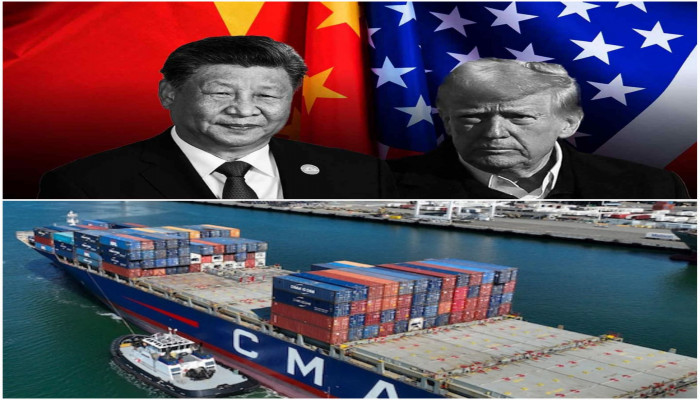China stops rare earth exports amid trade war with US, threatening western defence & tech industries
- In Reports
- 12:05 PM, Apr 14, 2025
- Myind Staff
During the escalating US-China trade war, China has halted exports of fundamental rare earth elements and related materials. This move could severely impact Western industries, including defence, electronics, automotive, aerospace and consumer goods, by disrupting their supply chains. According to The New York Times, China is working on a new set of export regulations. During this process, shipments of these magnets, crucial for making everything from vehicles to missiles, have been paused at many of the country’s ports. Once these new rules are finalised, they could permanently block certain companies, including US defence contractors, from accessing these critical supplies.
China’s export crackdown directly responds to President Trump’s aggressive trade measures. As the world’s top producer of rare earth elements, accounting for about 90% of global supply, China’s new controls, a set of 17 elements, target a vital resource used across key industries like defence, electric vehicles, energy, and electronics. Seven medium and heavy rare earth types, such as samarium, gadolinium, terbium, dysprosium, lutetium, scandium, and yttrium-related products, have now been added to China’s export control list. The U.S., by contrast, has just one rare earth mine and depends heavily on imports from China.
On April 2, China officially introduced these restrictions as part of a broader retaliation package that includes tariffs and company-specific limitations, following Trump’s move to raise tariffs on most Chinese imports to 54%. The export limits apply to raw rare earth minerals and critical finished products like permanent magnets, which experts say will be hard to replace.
This move, long signalled by Beijing, marks a sharp escalation in trade tensions between the two global powers. It puts U.S. manufacturers in a difficult position as they scramble to find alternative sources for materials they’ve relied on for years. According to the New York Times, any export of these metals or the specialised magnets from them requires a special license from Chinese authorities. China's licensing system for rare earth exports is still in its early stages. It creates anxiety among industry leaders who worry the delays could drag on, leading to shortages of key minerals and products outside China.
This policy affects exports to all countries, not just the US. It is a clear reminder of how China can leverage its control over the mining and processing of these critical materials. Although it's not a full ban, China can still limit the flow by issuing fewer export licenses. Big American companies like Lockheed Martin, Tesla, and Apple rely on rare Chinese earths for their production lines.
The US does have some reserves of rare earth elements, but not nearly enough to keep its defence industry running indefinitely. China has already wholly banned the export of three metals to the US and placed restrictions on several others. According to expert David Merriman from Project Blue, the clampdown on heavy rare earths is especially significant since China has an even tighter grip on those.
"There is currently only one HREE (heavy rare earth element) focused operation outside of China, Myanmar and Laos," he added, saying that China is deeply involved in the supply chains connected to Myanmar and Laos.
China has halted the export of heavy rare earth metals crucial for making magnets, which play a key role in various electric motors. These motors are used in building electric vehicles, drones, robots, missiles, spacecraft, and even traditional gasoline cars. These rare earth metals are also essential for producing jet engines, lasers, car headlights, specific spark plugs and capacitors, which are crucial in computer chips that run AI servers and smartphones.







Comments